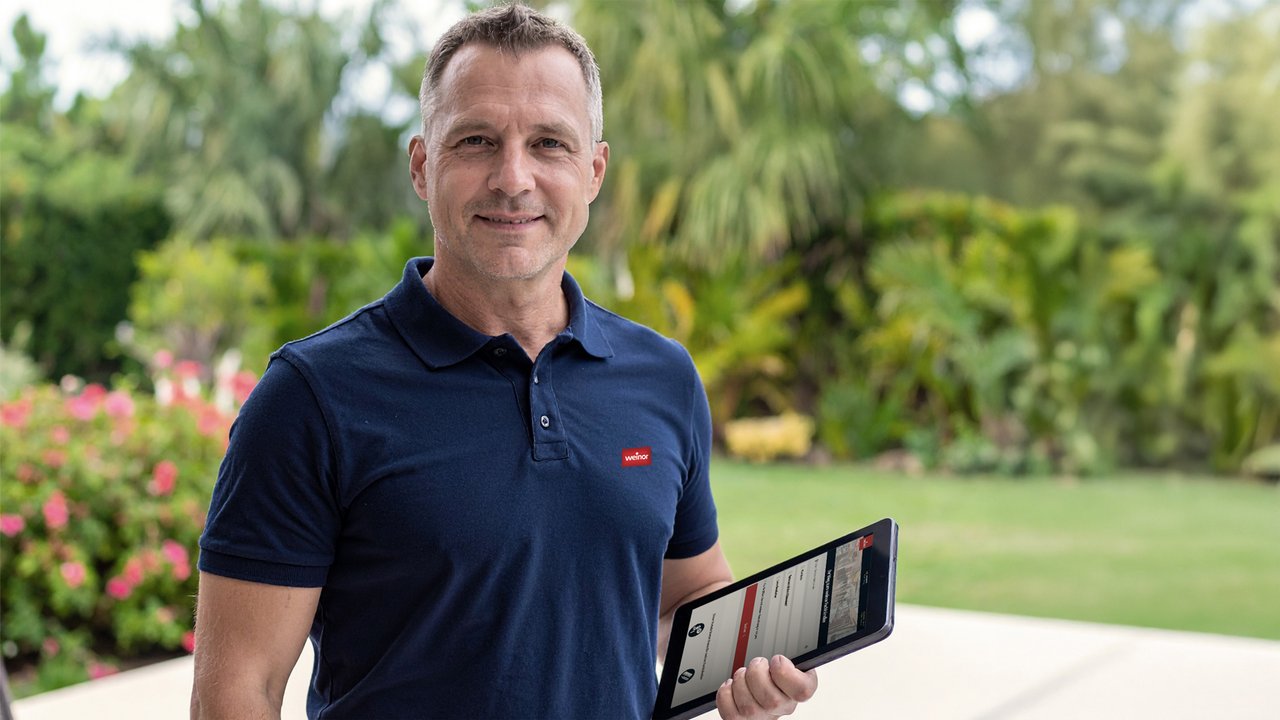Awning fabrics from PET bottles: good for people and the environment
State-of-the-art and sustainable
Sun protection, above-all awnings, provide natural heat protection and ensure a pleasant atmosphere on the patio. If you like it homely and at the same time wish to contribute to the environment, you are sure to find the pattern of your desire amongst the sustainable modern basics blue fabrics.
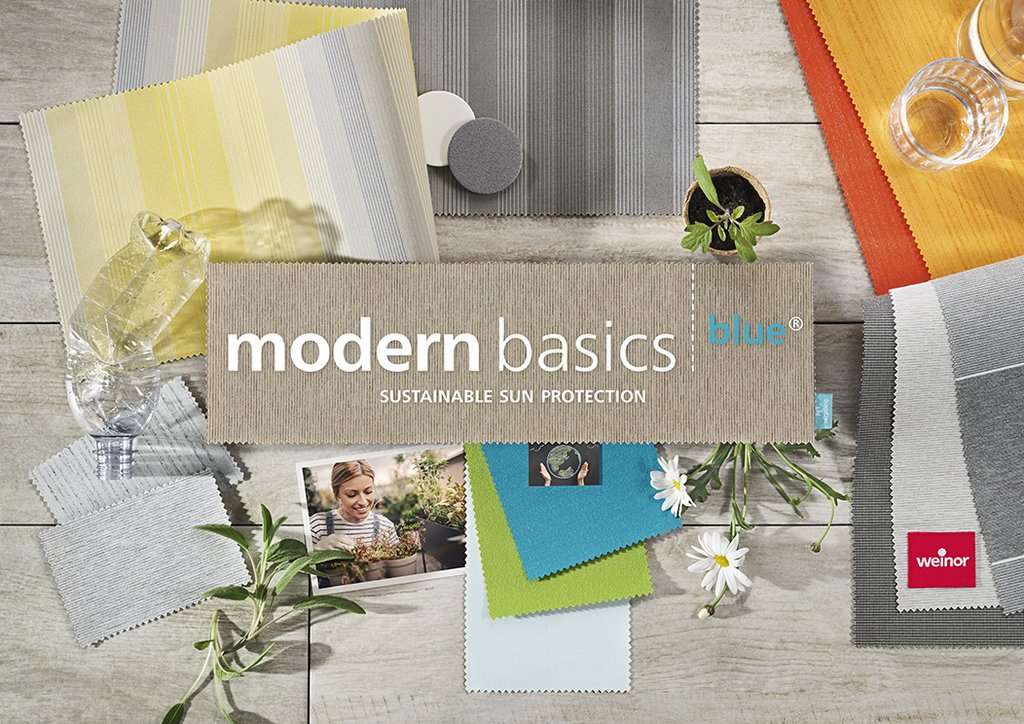
Take: recycled plastic bottles, one of the most renowned outdoor woven fabric producers worldwide and the concentrated expertise from weinor, the North-European market leader for sun and weather protection on the patio. A sustainably produced awning fabric collection with superlative quality and a contemporary look is (almost) ready. Quality time on the patio and good comfort there are also supplied.
Natural heat protection with a good conscience
The summers are becoming hotter. Not only outdoors, but also in the living areas, the temperatures to-date are increasing to unpleasant levels. Those who own a sun protection system and can thus ensure a good climate naturally are lucky. Because: on the one hand weinor awnings protect against overheating the patio and indoor rooms behind it. On the other hand, they help reduce the energy required for air-conditioning. That saves both resources and hard cash.
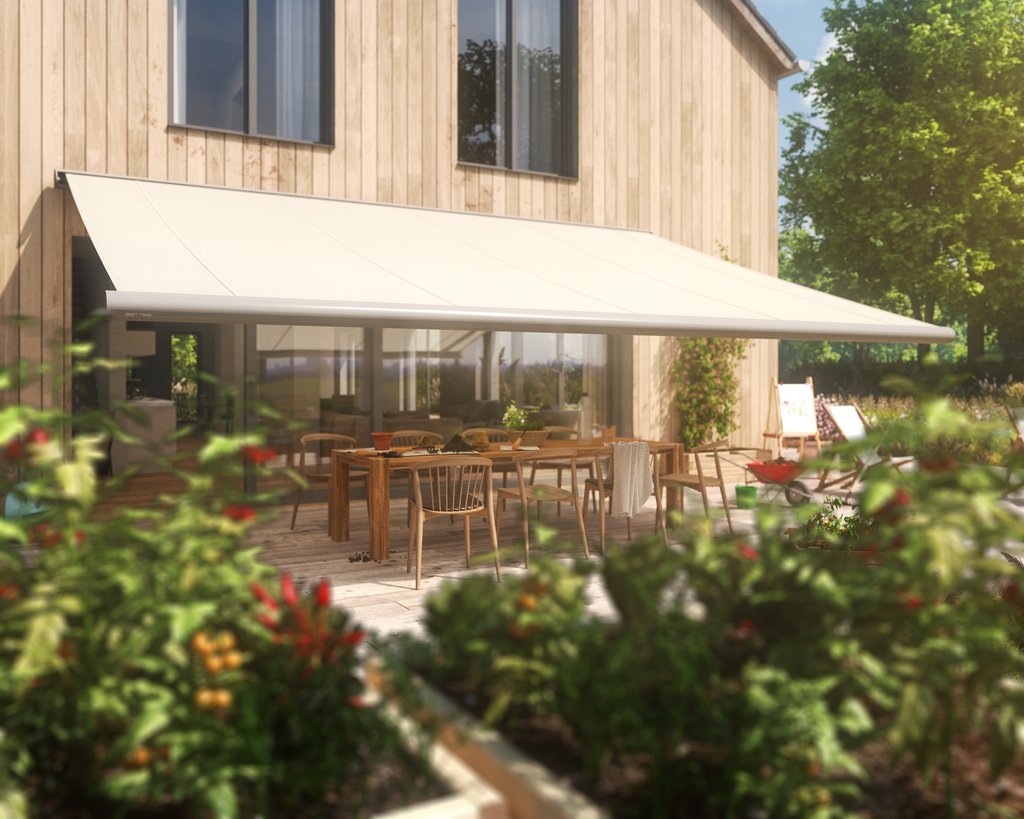
If you consider the environment when planning your patio, weinor is the right partner for sustainable solutions. With modern basics blue, weinor launched the first sustainable awning fabric collection for outdoor use on the market with sun protection fabric Tempotest Starlight Blue in 2021, which is certified with 85 percent recycled PET in accordance with the Global Recycled Standard (GRS). It was developed as part of a collaboration between the weinor Design Studio and Parà Tempotest and extended with 28 mostly new fabrics as a comprehensive partial collection for the most diverse of customer wishes.
The ecological footprint: several sizes smaller
weinor creates a new life cycle for used PET bottles and upgrades them additionally. Important materials are recycled, CO2emissions reduced and resources conserved. The name of the game us upcycling instead of recycling when a smart and at the same time sustainable awning fabric collection arises from PET bottles.
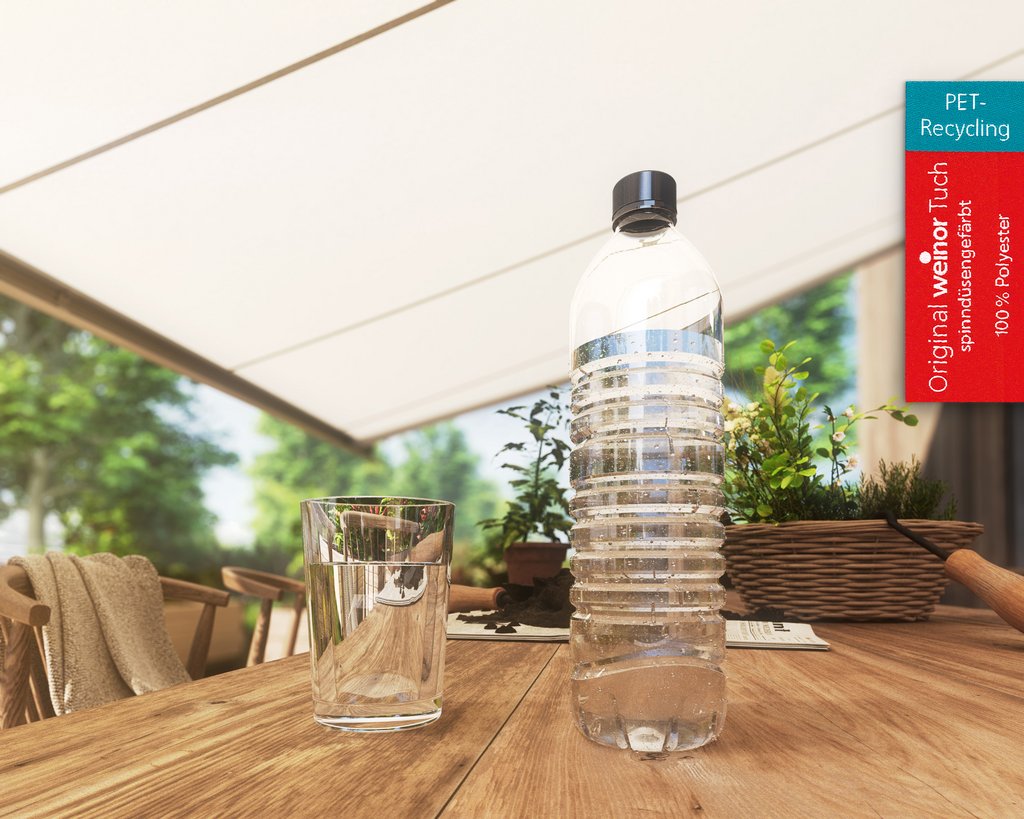
Upcycling – how does that work?
PET bottles belong to the recycling loop! You never know what will still happen with them! Pressed as bales, the bottles take their initial CO2-saving course in the recycling system. After sorting and cleaning, they are separated and shredded as small plastic flakes.
- One portion of chips please! For further processing as an awning fabric, the flakes must be transformed to chips. Nothing could be easier. The polyester is melted down again, pressed through a kind of industrial “spaghetti press” and finally cut as small chips.
- Colour through and through
For dyeing using the complex spinneret technique, the colourless chips are initially melted again and pigment added. As opposed to traditional processes during which yarn or woven fabric is only dyed when it is already ready, the basis is thus laid for a really thoroughly dyed yarn. The later effect is impressive: weinor awnings have bright, long-lasting colours which become a real experience when exposed to light. By the way: this dyeing process can reduce water consumption by up to 90 percent vis-à-vis traditional dyeing. - Continuous filaments for infinitely sustainable awning fabrics
The mass dyed by this means is pressed by spinnerets. Individual high-quality and elastic continuous filaments are produced which are finally joined together and wound onto bobbins. The yarn is then ready for the weaving mill. - Weave Italian – sew German
weinor uses the best for weaving. The weaving mill Parà is one of the most renowned producers of outdoor woven fabrics in Europe. The specialists manufacture the high-quality, sustainable and robust woven fabric in North Italy, which is later customised individually for each customer at weinor in Germany.
Robust and versatile
The fabrics made of Tempotest Starlight blue are certified according to Oeko-Tex Standard 100 and block more than 93 percent of UV radiation.
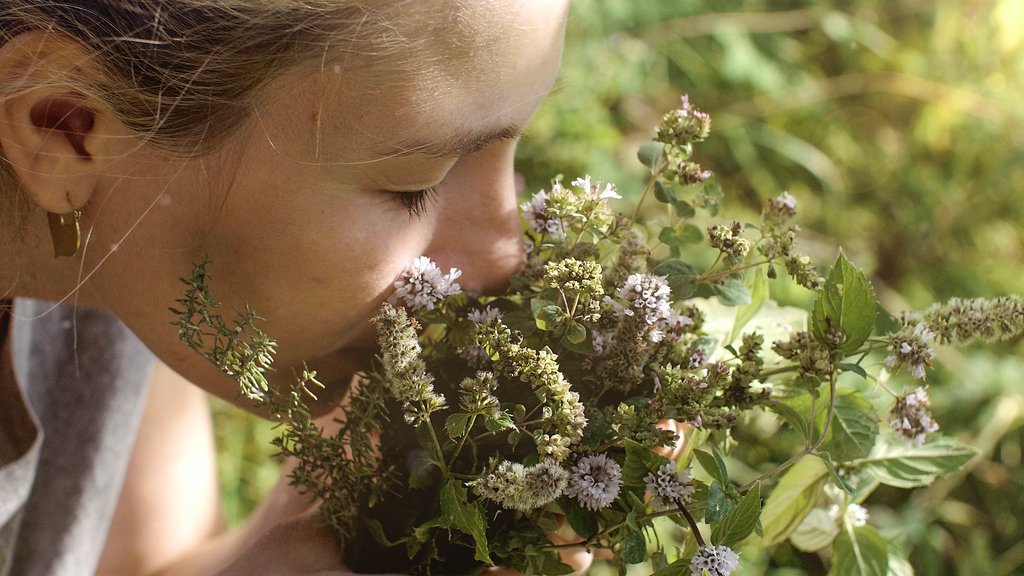
A high-quality Teflon layer makes the woven fabric insensitive to impurities. The surface is resistant to oil, water and soiling.
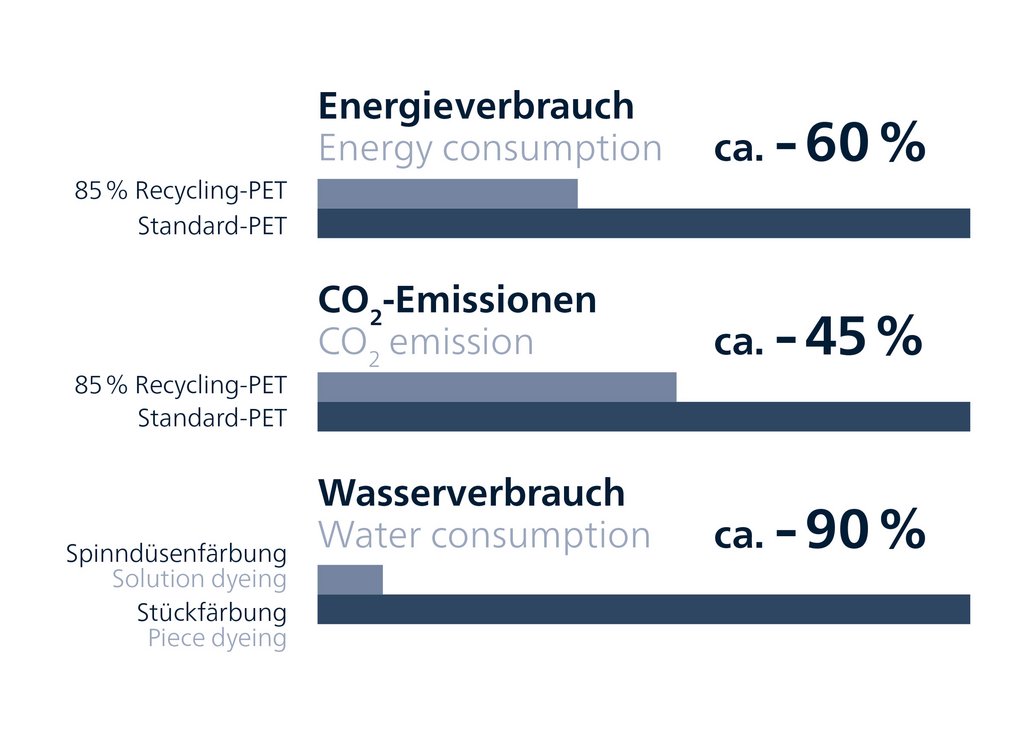
Compared to conventional polyester awning fabrics, modern basics blue impresses with a considerably better environmental balance in terms of energy consumption, emission and water consumption. Expressed in figures, this means: 60 percent less energy consumption, approx. 45 percent less CO2emission through PET recycling and approx. 90 percent less water consumption thanks to spinneret dyeing. Recycled PET is a first-class material. The quality of our new, sustainable collection is in no way inferior to the successful classic weinor awning fabric collection. The results speak for themselves. The first sustainable GRS-certified awning fabric collection with 85 percent recycled PET was accoladed alone with seven design and environment prizes.


